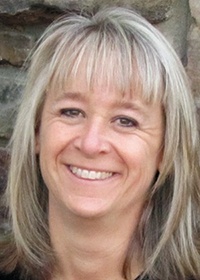Happiness begets engagement
by November 4, 2023 9:12 am 482 views

Gallup is regarded as the authority on the topic of employee engagement. Figures show employee engagement percentages across three spectrums: actively disengaged, not engaged (referred to as just there), and engaged.
The 2022 Gallup numbers came in at 18%, 50%, and 32% respectively. A full half of the workforce is merely just there. And if that’s not disturbing enough, think about the 18% who are actively disengaged. These individuals are actively and intentionally spreading dissatisfaction to others. It seems unlikely that the third that is engaged can offset that momentum. And maybe the worst part is that the numbers fluctuate only a couple of percentage points yearly. So, for all the talk on the topic, not much changes.
From my perspective, here’s the miss. “I” am the fundamental equation in the question, and yet no one asks me about “me.” Engagement surveys don’t inquire about personal well-being or individual levels of happiness. Shouldn’t the individual be the primary conversation? I think so.
Engagement discussions tend to get lumped into three buckets: all worthy conversations but secondary ones.
The role of the organization. Engagement commentary overwhelmingly implies that the organization is at fault for poor results. The organization must bear the burden. That seems unbalanced. Does the organization play a role? It does. Is the role that it plays primary to a more engaged workforce? It isn’t. I want to see organizations excel in all the ways that matter to their particular workforce. Still, I find it unlikely that the collective actions of the entity will solve individual engagement. Engagement is an individual decision that I make or don’t make.
The influence of leadership. After pointing to organizational gaps, another common thread is the overarching statement, “Leaders hold the key to employee engagement.” I could go along with that statement if “leader” meant “self,” as in self-leader(ship). But that’s not what it means. The statement suggests I’ve acquiesced control of my engagement to another party. If I were genuinely happy, would I vote by proxy? I would not.

The financial impact. Studies are quick to point out the negative financial implications of roughly 70% of the workforce categorized as actively disengaged or just there, targeting front-line productivity to bottom-line profitability — and everything in between. Yet, there is wealth beyond the P&L statement. There is untold wealth that happiness has the potential to create for mankind. The quest for individual happiness has far greater staying power. Organizations will continue to come and go over time, but humanity endures.
In the end, what is missing from all this cacophonous conversation on employee engagement is the truest, deepest, most basic human question of all: am I happy?
And don’t dilute the question. It’s not “Am I happy at work,” or “Am I happy with my boss” or “Am I happy with the vision of the organization?” But — as a human being — am I happy with myself, am I happy with who I am, am I happy with the life that I lead. Happiness is the driver of a life that contains engagement. Happiness begets engagement, not the other way around.
And just maybe, we’re starting to make progress on the happiness front. More people are embracing contemplative practices (mindfulness, meditation, centering) and creating simplified lives (less stuff, more experiences). There is a deep yearning to understand what truly brings joy and how that joy can be central to life. Once we get a real sense of what makes us happy, we gravitate toward work that matters in organizations where we flourish alongside people we are genuinely excited to see every day. Once I’ve made those decisions, ask me if I’m engaged. Actually, no, don’t ask me that.
Ask me if I’ve come alive. Because what we need is people who have come alive.
Happiness is an individual decision; a choice I make. And happiness begets engagement. Let’s get to the root of the discussion. What we need is for the human race to discover happiness.
Ancora Imparo … (Still, I am learning).
Stacey Mason is the founder of The Improv Lab, a professional development business in Bentonville. More information is available by calling 479-877-0131. The opinions expressed are those of the author.
